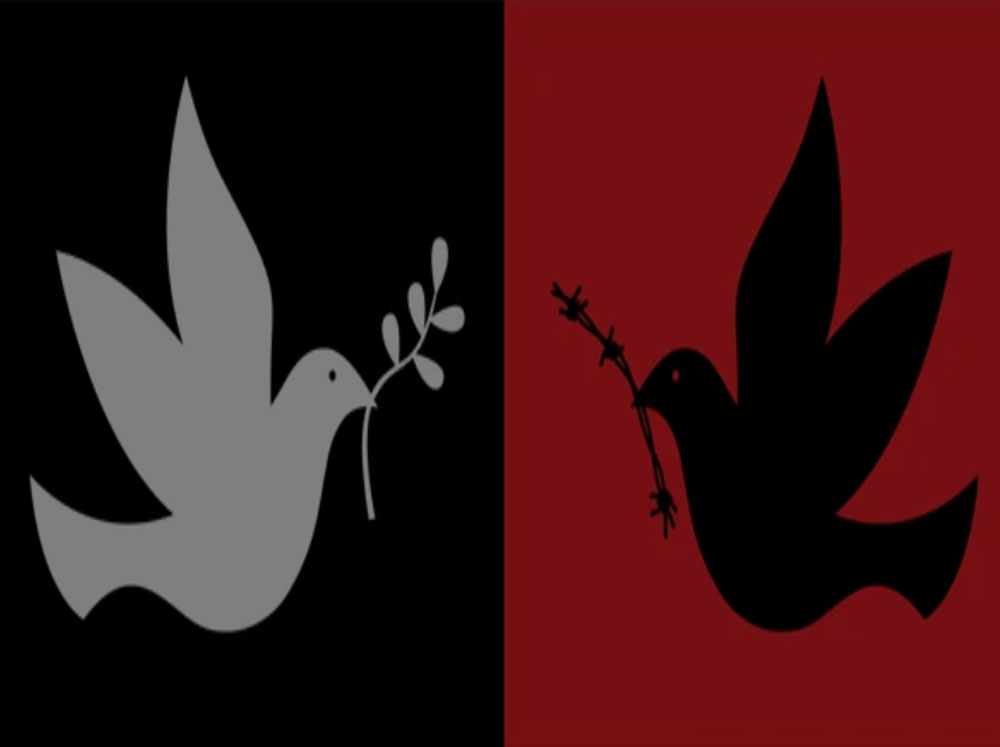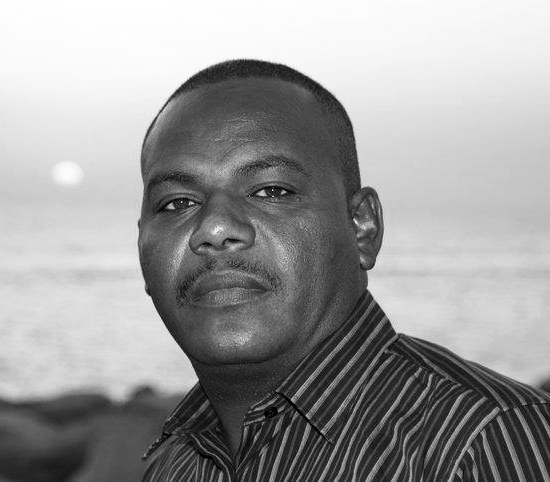
Writer and critic Mohamed Abdel Rahman Hassan: I am concerned about the future of peace and rational thinking due to the current violence
Al-Asmai Bashari
After more than three months spent under bombing, artillery strikes, and drone attacks, alone in his house in Abu Adam neighborhood, south of Khartoum, the art critic, writer, researcher, and university professor, Dr. Mohamed Abdel Rahman Hassan (Bob), arrived in the city of Shendi on his way to Port Sudan.
Mohamed regretted the situation in Khartoum due to the April 15 war, considering it a humanitarian catastrophe and an existential predicament, threatening the future of Sudanese society before the state, and the dying of the city before its geography. Even the most pessimistic people did not expect such a scenario in Khartoum and other states.
Mohamed said that until the 14th of last April, and until the early morning hours, when he moved from the Bari neighborhood to his home in Abu Adam after a social night with friends at the cafeteria of the Khartoum International Exhibition. Despite the presence of some unusual military appearances, where he passed through five checkpoints, he did not think of them more than security precautions in anticipation of a demonstration called for by some political blocs rejecting the framework agreement between the army, the Rapid Support Forces, and other civilian forces.
Mohamed was surprised the next morning by the outbreak of military clashes between the Sudanese army and the Rapid Support Forces, but even at that moment, he saw it as just a passing event that would be controlled, as happened more than once since 2019.
However, the continuation of the battles and the tremendous losses they caused in lives and properties during the first days led him to reconsider and contemplate again, invoking the historical epochs of Sudanese violence, theoretically and projecting them onto the reality of the escalating events day by day. He referred to the history of the collapses of Khartoum as a city over the past two centuries, its circumstances of emergence and formation, to reveal a critical vision that places the current war in the course of careful analysis, according to its historical contexts and its social, cultural, and of course, political complexities. It is a large and thorny topic that cannot be understood so quickly, or an attempt to write it hastily, which may be incorrect or rather inaccurate. However, he returned to alert the Sudanese to the absence of important studies on major social transformations, especially those produced by the Darfur war over more than two decades. It is a fertile field that has been buried or obscured by the dominant truncated political discourse.
Mohamed Abdel Rahman fears the effects of the current violence on the future of peace, which was characterized by the glorious December revolution, and on the future of rational thinking among the youth, and their perceptions of concepts such as democracy, the state of citizenship, rights, and ways to achieve justice.
On a personal level, the ninety days he spent under difficult humanitarian conditions due to the war, the lack of basic services, and the ongoing and direct threat to his life, where he spent days and nights inside the house, due to the soldiers reliance on their heavy and light weapons and their armored vehicles stationed in front of the house at the famous Nubatia station known for military battles in Khartoum, which is located in the middle of several military areas such as the armored corps, the ammunition corps, and the Yarmouk military complex, the central reserve. If it werent for Gods grace and care, he would have been among the missing when he was exposed to direct gunfire twice.
Mohamed talks about his food and drink conditions, about cooking materials he did not know could be cooked as human food. And about drinking water from the well of his house, which he drank after purifying and filtering it with gravel and boiling it, and he wonders, How did I survive all this?
During this difficult period, Mohamed returned to drawing after a hiatus of more than fifteen years. He also began writing a draft about his new vision of Sudan as a society, an idea that was postponed from his last three books. He believed that presenting a vision about his homeland required extensive knowledge of historical contexts that touch its reality, and others to understand the other. With regret, he says: But unfortunately, what I gleaned from paintings, and what I wrote in drafts on paper, I left in the house, exposed to an expected violation, after leaving the house.
Mohamed Abdel Rahman studied fine arts, then philosophy and history, which enabled him to be among the list of Sudanese thinkers, albeit few. He has a critical and intellectual project and has made clear contributions in this field. He became interested in post-linguistic revolution methodologies.
His book The Identity of Arab Art Formation between Authenticity and Alienation was published in 2011. He won the first prize for the Sharjah Criticism Prize and Visual Arts and the Modernization of Arab Societies between Multiple Modernities and Local Perspectives. He also won second place for the same award in 2016. Also, during the last six years, his book (From Criticism of Modernity to Criticism of Civilization) was published in two parts: the first under the title (Selfhoods... Unveiling the European Philosophical View of Man and Society), and the second under the title (Revolutions... Unveiling the European Historical Discourse), published by Waqf Publishing. And from Manazir Publishing, his book (Criticism of the Thought of the Global South.. Introduction to Transition from Criticism of Modernity to Criticism of Civilization) was published.


